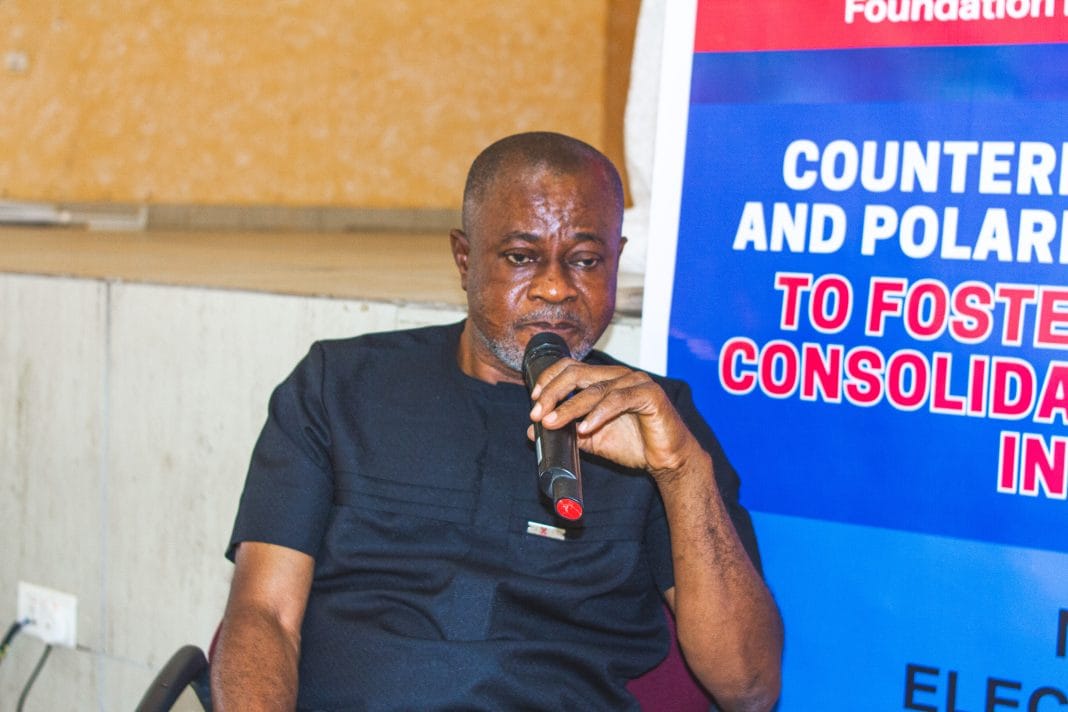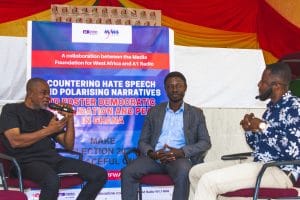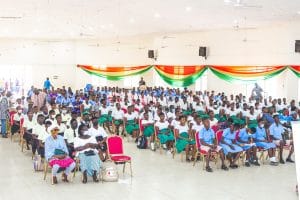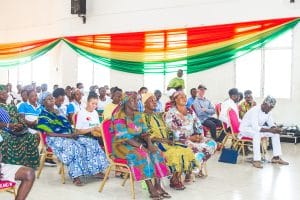As Ghana approaches the 2024 general and parliamentary elections, concerns over the rise of hate speech and polarizing narratives spreading through traditional media, social media, and community discussions are growing.
If left unchecked, these divisive messages could escalate into widespread chaos both before and after the election.
In response, the Upper East Regional Peace Council, in collaboration with various stakeholders, is intensifying efforts to educate key groups and institutions about the dangers of hate speech and the potential consequences of polarizing narratives.
The focus of these efforts is on first-time voters in senior high schools and tertiary institutions, ethnic-based groups, youth organizations, and religious communities. These groups are being targeted with awareness campaigns designed to foster tolerance and promote peace ahead of the elections.
The initiative was discussed during a forum on “Countering Hate Speech and Polarizing Narratives to Foster Democratic Consolidation and Peace in Ghana,” held with Ali Anankpieng, the Upper East Regional Secretary of the Peace Council.
The forum attracted students of some senior high schools in the Upper East Region as well as members of some political parties.
The event was organized by A1 Radio, with funding from the Media Foundation for West Africa (MFWA) through its “Countering Hate Speech and Polarizing Narratives to Foster Democratic Consolidation and Peace in Ghana” project.
The project seeks to support radio stations in educating the public, promoting a culture of tolerance, and encouraging responsible information sharing. Its goal is to counter divisive and toxic narratives, especially during the election period, and foster inclusive political discourse to strengthen Ghana’s democracy.
Mr. Anankpieng described hate speech as a form of violence, stating, “If you demoralize someone, you have emotionally attacked that person. Whether emotional, physical, or psychological, violence is violence. All forms must be discussed and addressed.”
He praised the organizers of the program, emphasizing that the discussions were crucial in tackling violence: “As we have this discussion today, we are tackling violence.”
While acknowledging the benefits of technology, Mr. Anankpieng expressed concern that mobile phones and the internet have made it easier for hate speech and polarizing narratives to spread.
“Phones are useful, but when you consider where mobile phones come from — the U.S., China, or elsewhere — and how their children use them, they use them to learn skills. Here, however, we use mobile phones to spread information without even knowing the source,” he explained.
To combat hate speech and polarizing narratives, particularly among the young, Mr. Anankpieng emphasized the need to encourage youth to use online technology for productive purposes rather than for spreading harmful content.
He also reminded the media of their crucial role in fostering unity and promoting national development, particularly during the election period. “The media’s role in countering hate speech cannot be overstated, especially as we approach the election. That is why this conversation is so important to us at the Peace Council,” he said.
Hate speech refers to any form of communication that incites violence, discrimination, or hostility against individuals or groups based on characteristics such as race, religion, ethnicity, gender, sexual orientation, or nationality.
It includes the use of derogatory language, insults, threats, or offensive content that fosters prejudice and intolerance. Hate speech can occur through verbal insults, discriminatory remarks in media, or harmful content shared online, often targeting specific communities and promoting harmful stereotypes or violence.
While freedom of speech is a fundamental right, many countries impose restrictions on hate speech to prevent harm or violence. Unchecked hate speech can undermine social cohesion, spread fear, and contribute to conflicts or discrimination. The goal is to balance the right to free expression with the need to protect individuals and communities from harm, ensuring that speech does not lead to real-world consequences like incitement to violence or social unrest.
Source: A1Radioonline.com|101.1Mhz|Mark Kwasi Ahumah Smith|Bolgatanga|





